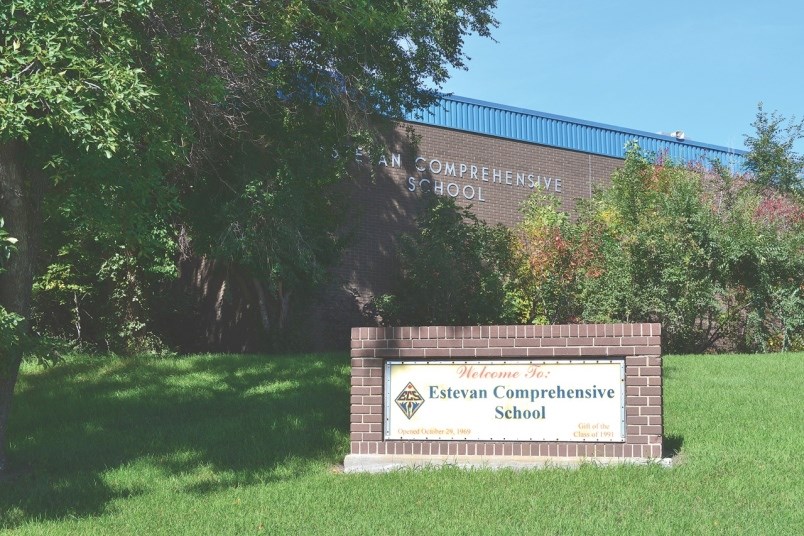ESTEVAN — The Estevan Comprehensive School has endured the worst possible time to have its air-conditioning system break down.
The air conditioner failed last week when it was fired up for the first time this year, when the southeast region started experiencing some higher temperatures.
"The spring start-up did not go as planned. The unit is not usable at this point. They've ordered some parts to get it up and running, but they're not here yet, and as such, we are suffering," said principal Nathan Johnson.
The situation was exacerbated when a heat warning was issued for the Estevan area early Sunday, with the forecast calling for temperatures that exceed 30 C and humidex figures closer to 40 C. The warning was still in effect as of the Mercury's press time. The temperatures are supposed to remain close to 30 C until the weekend.
The school addressed the situation on social media Sunday, after some comments were posted online. ECS noted the air conditioning was not turned off to save money or because it was more fiscally responsible. The chiller needed a new circuit board and fuses had been sourced and ordered, and Johnson said it sounds like they can be repaired with new parts.
"We appreciate the work of SECPSD [South East Cornerstone Public School Division] maintenance crews and external contractors who continue to work hard to get this unit operational," the school wrote.
Students were encouraged to bring a water bottle to ensure they stay hydrated. Staff will remain cognizant of the warm temperatures and will continue to plan activities and lessons that are appropriate for the warm conditions.
The school has tried to address the problems by purchasing fans and having them operate in as many classrooms as possible to create a little bit of air movement, but it's not sufficient, Johnson said. When it cools down, they try to open up doors to get some cool air circulating in the evenings, but that hasn't worked well, either, and the school doesn't have a lot of windows.
As for reports that people at the school have suffered from heat stroke and illness, Johnson said they haven't had anybody report heat stroke to the office.
"There have been people who have decided that they don't feel well, and as with any sickness, that's a parent's decision as to whether they will go home," he said.
Other students have not attended classes as a pre-emptive measure due to the temperatures in the school.
The school is looking at the possibility of bringing in a portable air conditioner. Johnson wanted to know if it would be suitable for a building the size of ECS.
"It sounds like there are some options out there," he said.
ECS did not look at cancelling classes because of the air-conditioner issue. In the meantime, they hope to keep the building as comfortable as possible until a solution is found.
In an email to the Mercury on Tuyesday afternoon, Johnson said some needed parts came in Tuesday morning and the chiller unit at ECS is now up and running at reduced capacity.
"We are told that even at reduced capacity, it will help to make the facility more comfortable. We are hopeful that the system will be fully operational in the near future," he said.
The school thanked Cornerstone staff and external contractors who have been working hard to get the chiller up and working.






